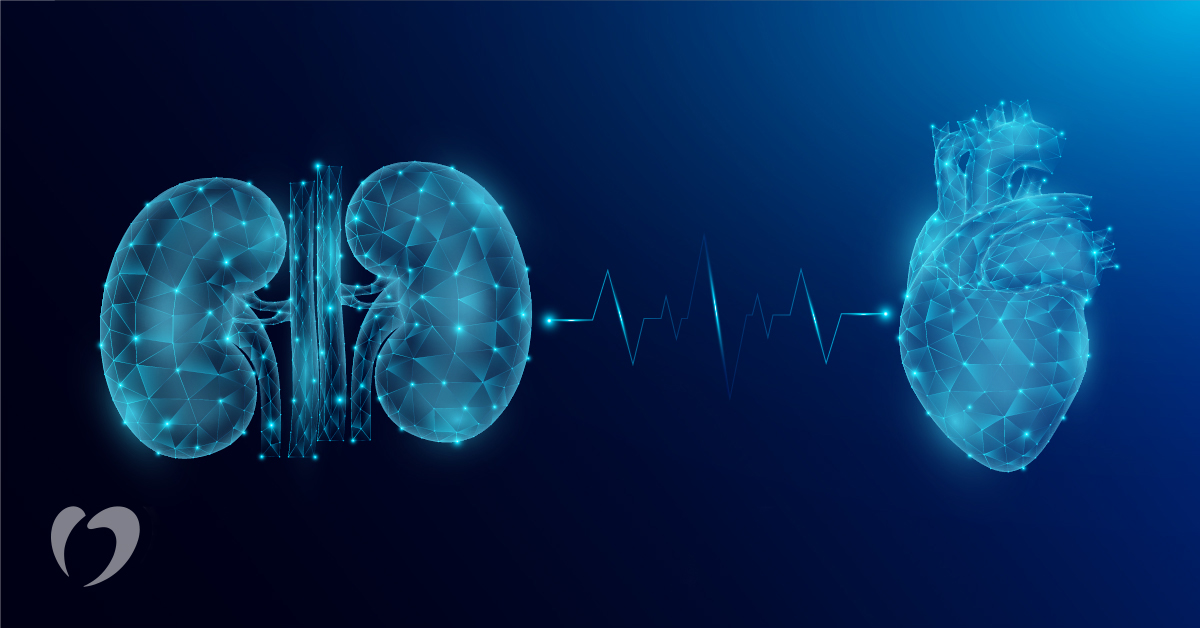The Link Between Kidney Disease and Heart Disease

Kidney disease and heart disease are deeply connected. When one organ isn’t functioning well, it often affects the other. People with chronic kidney disease are at significantly higher risk of developing heart disease, and the reverse is also true. Understanding how these conditions interact is key to protecting both your kidney and heart health.
Even if you have mild kidney disease or early signs of heart trouble, early management can make a meaningful difference. By recognizing the link between kidney disease and heart disease, patients and providers can work together to reduce risks and improve long-term health outcomes.
How your kidneys and heart work together
Your heart and kidneys rely on each other to keep your body functioning. The heart pumps blood throughout the body, including to the kidneys. In turn, the kidneys filter waste and excess fluid from the blood and help regulate blood pressure, electrolytes, and red blood cell production.
When one of these organs isn’t functioning well, it places additional stress on the other. If the kidneys can’t remove enough fluid, the extra volume makes the heart work harder. If the heart can’t pump effectively, the kidneys may not receive enough blood to function properly. This interdependence creates a cycle in which damage to one organ leads to damage in the other.
How kidney disease increases your risk of heart problems
People with chronic kidney disease (CKD) are more likely to develop cardiovascular conditions, such as heart failure, coronary artery disease, or arrhythmias. In fact, heart disease is the leading cause of death in people with kidney disease.
Several factors contribute to this increased risk:
- High blood pressure — This is one of the most common causes of kidney disease, and kidney disease can also cause high blood pressure. Elevated blood pressure strains the heart and blood vessels over time.
- Fluid overload — When the kidneys don’t remove fluid properly, excess fluid builds up in the body. This raises blood pressure and increases the heart’s workload.
- Electrolyte imbalances — Kidney disease can disrupt levels of potassium, calcium, and phosphorus, which can interfere with heart rhythm and muscle function.
- Chronic inflammation — Kidney disease is often associated with systemic inflammation, which may damage blood vessels and accelerate atherosclerosis (hardening of the arteries).
- Anemia — Reduced red blood cell production in kidney disease can lead to fatigue and place additional strain on the heart.
Together, these issues increase the likelihood of heart-related complications, even in patients who don’t yet show signs of heart disease.
Heart disease can also damage your kidneys
The connection between kidney disease and heart disease goes both ways. People with heart failure, coronary artery disease, or other heart problems are also at higher risk of developing kidney disease.
When the heart can’t pump efficiently, less blood reaches the kidneys. This can impair kidney function over time. In addition, some medications used to treat heart conditions can affect kidney function, particularly when the kidneys are already under strain.
This two-way relationship is sometimes called cardiorenal syndrome, a condition in which heart and kidney dysfunction perpetuate one another. Left unmonitored, it can lead to rapid health decline.
Who is most at risk?
Certain groups are at higher risk of developing both kidney disease and heart disease. These include:
- People with diabetes or high blood pressure
- Older adults
- Individuals with a family history of kidney or heart problems
- People who are obese or have a sedentary lifestyle
- Smokers
If you fall into one or more of these categories, regular checkups and early screening are especially important. Monitoring both kidney and heart function over time allows your care team to spot problems early and take proactive steps.
Managing both conditions together
Because the heart and kidneys affect each other so directly, it’s important to take a whole-body approach to care. That often means working with both a cardiologist and a nephrologist to develop a coordinated treatment plan.
Management usually focuses on controlling blood pressure and blood sugar, maintaining a heart-healthy diet, staying active, and monitoring labs regularly. In some cases, your provider may recommend medications that support both heart and kidney function, such as ACE inhibitors or SGLT2 inhibitors. Your care team will work with you to find the safest and most effective options for your health.
Reduce your risk of kidney disease and heart disease
Kidney disease and heart disease often go hand in hand, but with the right care, you can take steps to lower your risk for both. Even if you don’t currently have symptoms, proactive monitoring and lifestyle changes can help prevent complications before they start.
At Oklahoma Heart Hospital, our cardiologists work closely with patients who are managing kidney disease and other complex conditions. We offer personalized, team-based care to help you understand your risk and protect your long-term health.
If you have questions about your heart or kidney health, don’t wait. Schedule an appointment today with one of our cardiologists and take the first step toward supporting your overall well-being.
